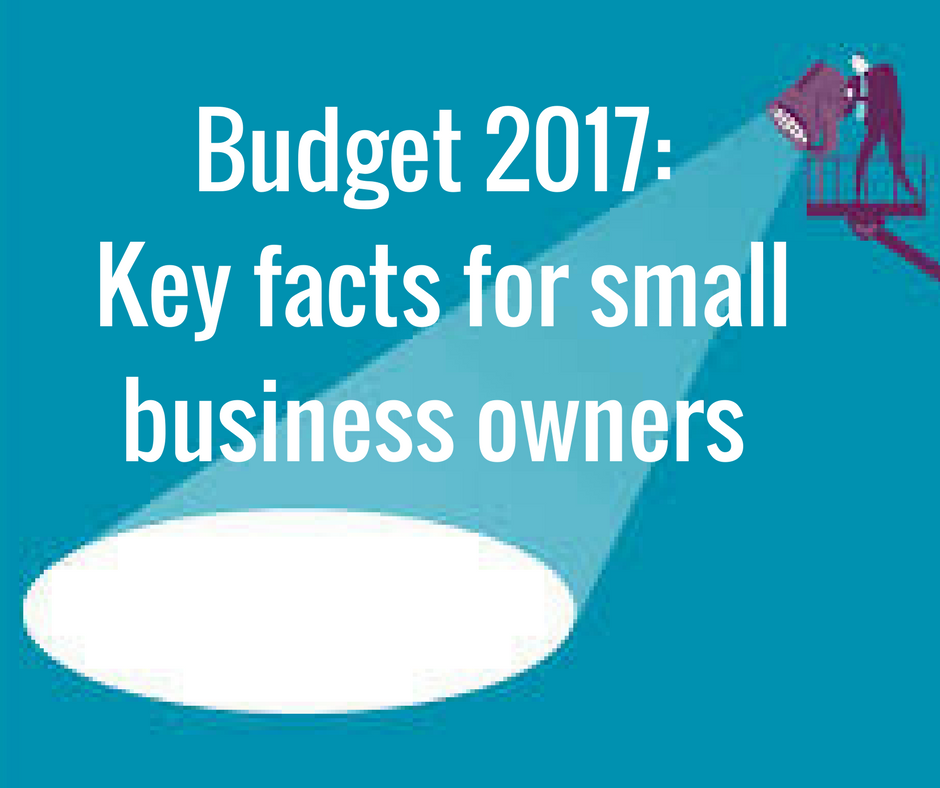 It would appear that small businesses and the self-employed have once again come into the firing line through measures introduced in the Chancellor’s Spring Budget.
It would appear that small businesses and the self-employed have once again come into the firing line through measures introduced in the Chancellor’s Spring Budget.
For the full 68 page report on the Budget 2017 you can click here.
In the meantime, here are the key points affecting small business owners:
Compliance with Making Tax Digital (MTD)
The pre-budget plan is for all businesses with an annual turnover above £10,000 to file information on their income and expenditure quarterly in a digital format from April 2018. There’s more detail here.
The government announced that unincorporated businesses (sole traders and the self-employed) and landlords with an annual turnover under the VAT threshold (currently £83,000), will have until April 2019 to prepare before MTD becomes mandatory. This will provide more time to prepare for digital record keeping and quarterly updates.
Businesses with a turnover exceeding this threshold will have to comply from April 2018.
My view:
It is certainly welcome news that small business owners have a little longer to get themselves organised with MTD but this is only a small concession. There has been much campaigning for businesses with a turnover below the £83,000 threshold to be excluded completely from MTD proposals and it’s disappointing that such a threshold was not introduced.
National Insurance Contributions (NICs)
The government has long talked of the lack of parity between taxes that employees pay and those paid by the self-employed. Historically the lower levels of NICs paid by the self-employed was due to differing levels of State Pension entitlement between the self-employed and employed. Since April 2016 the self-employed have had access to the same State Pension as employees and to reflect the more equal pension entitlement, the government has sought to equalise tax treatment by increasing Class 4 NIC’s.
Currently the self-employed pay:
- Class 4 NICs of 9% are paid on profits between £8,060 and £43,000. 2% is paid on profits greater than £43,000
- Class 2 NICs are paid on profits above the small profit threshold of £5965
From 2018
- Class 2 NICs will be abolished
- The main rate of Class 4 NICs is to be increased to 10% from April 2018 and from 11% from April 2019
The Budget papers imply that the additional rate of Class 4 NICs, currently set at 2%, will not increase from 6 April 2018.
Self-employed individuals with profits over £16,250 will have to pay more tax as a result of these changes.
As Class 2 NIC currently entitles individuals to a State Pension and other benefits, it remains to be seen how their entitlement will be affected by the new arrangements.
My view:
Those who are self-employed should not be viewed in the same light as employees when it comes to taxes. The self-employed receive no sick pay, paternity, maternity or holiday pay entitlements enjoyed by employees. They fund their own training and development and suffer all the associated financial risk with running a business. The government has failed to acknowledge or reflect this discrepancy.
Dividend tax allowance
In an effort to reduce the incentive for small business owners to incorporate in order to benefit from tax free dividends, the government will reduce the tax free dividend allowance of £5,000 to £2000 per year from April 2018.
Small business owners who take a small salary from their company and top this up with dividends will face higher tax bills.
Partially offsetting this additional tax liability is the reduction in the corporation tax rate from 20% to 19% in April 2017.
VAT registration and deregistration threshold changes
From 1 April 2017, the VAT registration threshold will increase from £83,000 to £85,000 and the deregistration threshold from £81,000 to £83,000.
VAT Flat Rate Scheme
There were no announcements re the VAT Flat Rate Scheme changes which implies that the announcement made in November ’16 still holds. You can read more here.
Changes to the Cash basis threshold
The Cash basis scheme was introduced in April 2013 and allows qualifying small businesses to calculate tax due for self-assessment under a cash basis. This involves recording your income and expenses when they were received or paid respectively. This contrasts with the “traditional” accruals method of accounting. You can read more here.
This cash basis measure increases the turnover entry threshold from the current level of £83,000 in 2016-17 to £150,000 with the corresponding exit threshold increased to £300,000. This will take effect from 6 April 2017.
Running an online business?
The Chancellor has identified the inequalities between digital businesses with no premises and those operating from “bricks and mortar” premises with all the ensuing costs (e.g. rates). There were hints given in the budget speech that suggested that some legislation is planned to level the playing field.
Summary
This was a disappointing budget to small business owners and the self-employed.
Whilst attentive to the voice of business, the government is not listening to the voice of the smallest businesses. By imposing additional costs and tax on the smallest businesses the government is failing to recognise the lack of benefits available to the self-employed compared to those enjoyed by employees and thereby discouraging entrepreneurial activity and innovation.
P.S Pass it on
If you’ve found this post helpful, please use the icons below to tweet it, like it and share. And do leave your email address in the sign up box to be the first to receive more tips and inspiration for small business owners.
